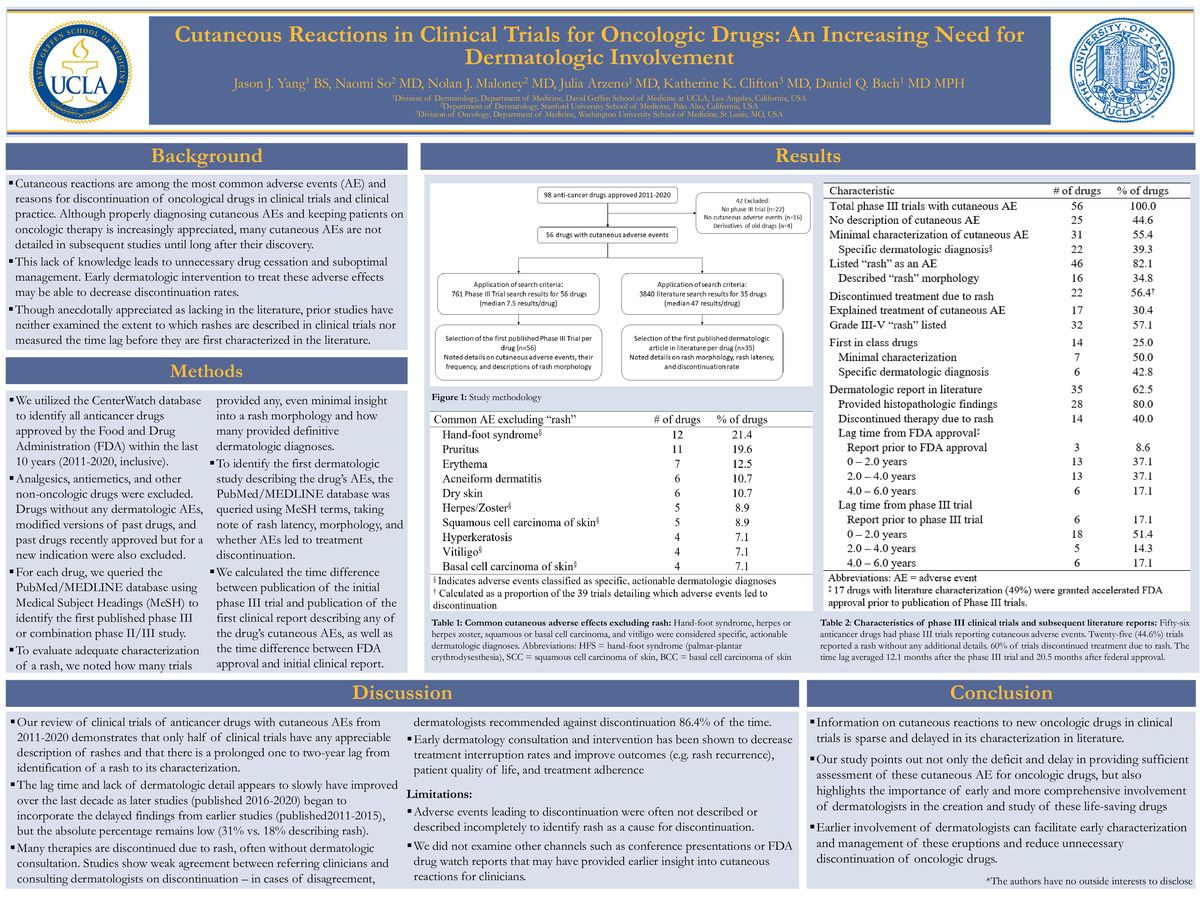-
Author
Jason Yang -
Co-author
Jason J Yang, Naomi So, Nolan J Maloney, Julia Arzeno, Katherine K Clifton, Daniel Q Bach
-
Title
Cutaneous Reactions in Clinical Trials for Oncologic Drugs: An Increasing Need for Dermatologic Involvement
-
Abstract
Background: Rash is a commonly reported adverse event in oncologic drug trials. Understanding these events can reduce unnecessary treatment discontinuation.
Objective: To evaluate reports of cutaneous adverse events in oncologic trials and quantify the delay from identification of the rash to its full characterization in the literature.
Methods: Using the FDA CenterWatch database, we identified all oncologic drugs approved between 2011-2020. The PubMed/MEDLINE database was queried to identify each drug’s first phase III clinical trial and the first literature report detailing its cutaneous adverse events.
Findings: Fifty-six of 98 anticancer drugs had phase III trials that reported cutaneous adverse events. Twenty-five (44.6%) reported a rash but provided no additional details. The remaining thirty-one (55.4%) characterized a rash in any capacity (by providing details regarding morphology), and 22 of these (39.3%) provided specific dermatologic diagnoses. Patients were reported to have discontinued treatment in 56.4% of the trials due to rash. Of the 56 drugs with cutaneous adverse events, 35 had subsequent dermatologic reports in the literature detailing features and management of associated cutaneous reactions with a significant time lag averaging 12.1 months after the initial phase III trial and 20.5 months after federal approval.
Conclusions and Relevance: Most oncologic clinical trials do not adequately characterize cutaneous eruptions. There is a significant and unnecessary time lag between observation of rash as an adverse event and its characterization in the literature to provide any detailed understanding or guide management. Earlier involvement of dermatologists can facilitate early characterization and management of these eruptions and reduce unnecessary discontinuation of these oncologic drugs.
-
College
AMC
-
Zoom
https://zoom.us/j/2939288892?pwd=TTZGOFIwT2o4Z0ZUSUg1ZG56NmE0dz09
-
PDF

